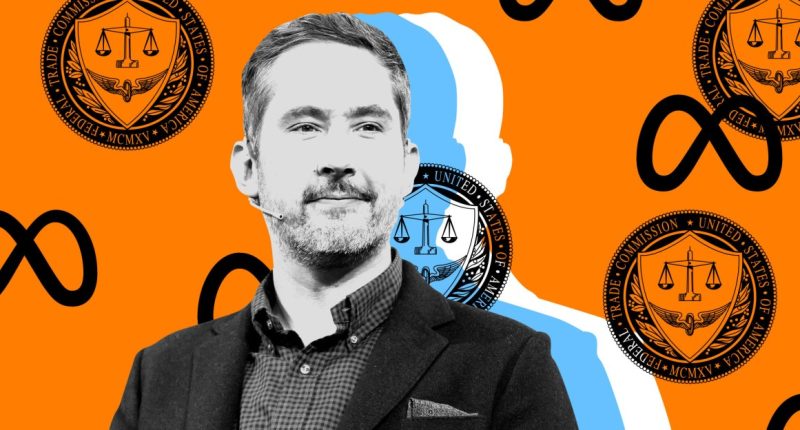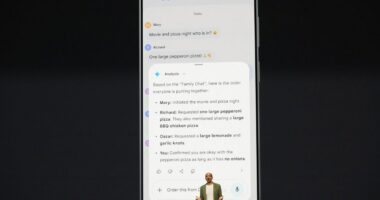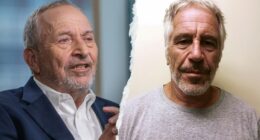Share this @internewscast.com
When Instagram was acquired for $1 billion in 2012, co-founder Kevin Systrom anticipated that merging with Facebook would amplify Instagram’s already “skyrocketing growth” even further.
In some respects, it succeeded. Instagram now boasts billions of users and has since “generated many multiples of that price and then some,” Systrom commented on Tuesday from a Washington, DC courtroom. Nonetheless, according to him, this achievement frequently occurred despite, rather than because of, Facebook’s assistance.
While giving testimony in the Federal Trade Commission’s lawsuit aimed at compelling the separation of Instagram and WhatsApp from Meta, Systrom asserted that CEO Mark Zuckerberg consistently withheld essential resources from Instagram and restricted its growth to prevent impacting Facebook’s engagement. Despite Meta’s attorneys’ objections, Systrom also speculated that, in retrospect, Instagram likely would have thrived independently.
Over the course of about six hours, Systrom remained steady and confident on the witness stand. Zuckerberg himself sat in the same seat last week, describing how Instagram would likely not have become the social media powerhouse it is today without his help. In contrast, Systrom’s testimony portrayed Zuckerberg as a withholding and jealous boss. He described how he and Instagram’s other co-founder, Mike Krieger, quit in 2018 after growing increasingly frustrated with Zuckerberg’s meddling in Instagram’s operations.
In court, Systrom was presented with an internal chart from that same year detailing the feature integrations Facebook had made with Instagram. With the help of features like notifications promoting Instagram within Facebook and cross-posting between the apps, Instagram experienced growth, while Facebook saw a neutral effect.
Systrom said that, shortly before he and Krieger quit, Zuckerberg decided to end the feature integrations because, in Systrom’s view, he didn’t want Instagram to grow at the expense of Facebook. “We were a threat to their growth,” Systrom testified.
“If Instagram didn’t grow as quickly, Facebook wouldn’t shrink as quickly, or plateau as quickly,” Systrom said in court. “I don’t think he [Zuckerberg] ever said it out loud that way, but that was the only reason we were having this discussion.”
At the time, Instagram had just reached one billion users, which was about half of Facebook’s user base, with a fraction of the employees. Systrom felt that Zuckerberg was “underinvesting” in Instagram and giving it “zero resources,” which Systrom thought was “in stark contrast to the effort I was putting in.”
According to Systrom’s telling, ego played a role. Zuckerberg was “very happy to have Instagram in the family,” he testified. “But also, I think as the founder of Facebook, he felt a lot of emotion around which one was better, meaning Instagram or Facebook, and I think there were real human emotional things going on.”
“I think there were real human emotional things going on”
Systrom recalled other instances where Instagram was denied the resources it needed. When Mark Zuckerberg declared that video would be the next big shift in social networking, Facebook started allocating internal resources towards the push. The company initially allocated 300 employees to making video a prominent part of Facebook, while Instagram received no additional headcount.
Following the Cambridge Analytica data scandal that embroiled Facebook in controversy over its privacy practices, Systrom stated that his organization received “zero” of the billions of dollars in trust and safety resources that Zuckerberg had publicly committed to spending. Instead, he said Instagram was given access to a centralized team that was more focused on Facebook. He also described how, years earlier, Zuckerberg suddenly yanked members of the Facebook growth team who had been deployed to help Instagram.
During cross-examination, Meta attorney Kevin Huff attempted to discredit Systrom’s testimony. He hardly gave an inch by maintaining that Instagram would have likely been successful as an independent company. “You deal in a world of probabilities,” he said. “You can never be sure. Some things you can be more sure of.”
Huff’s questioning of Systrom got tense on several occasions. His stone-faced, one-liner responses prompted rounds of laughter in the courthouse media room, though Judge James Boasberg rarely cracked a smile. When Huff brought up an early email Systrom sent to Zuckerberg crediting an integration with Facebook for much of Instagram’s early growth, Systrom said he was only emphasizing the benefit to appease Zuckerberg.
Huff then asked Systrom if he was lying to Zuckerberg in the email. Seemingly irritated, Systrom stared back and simply said, “Sir.”






